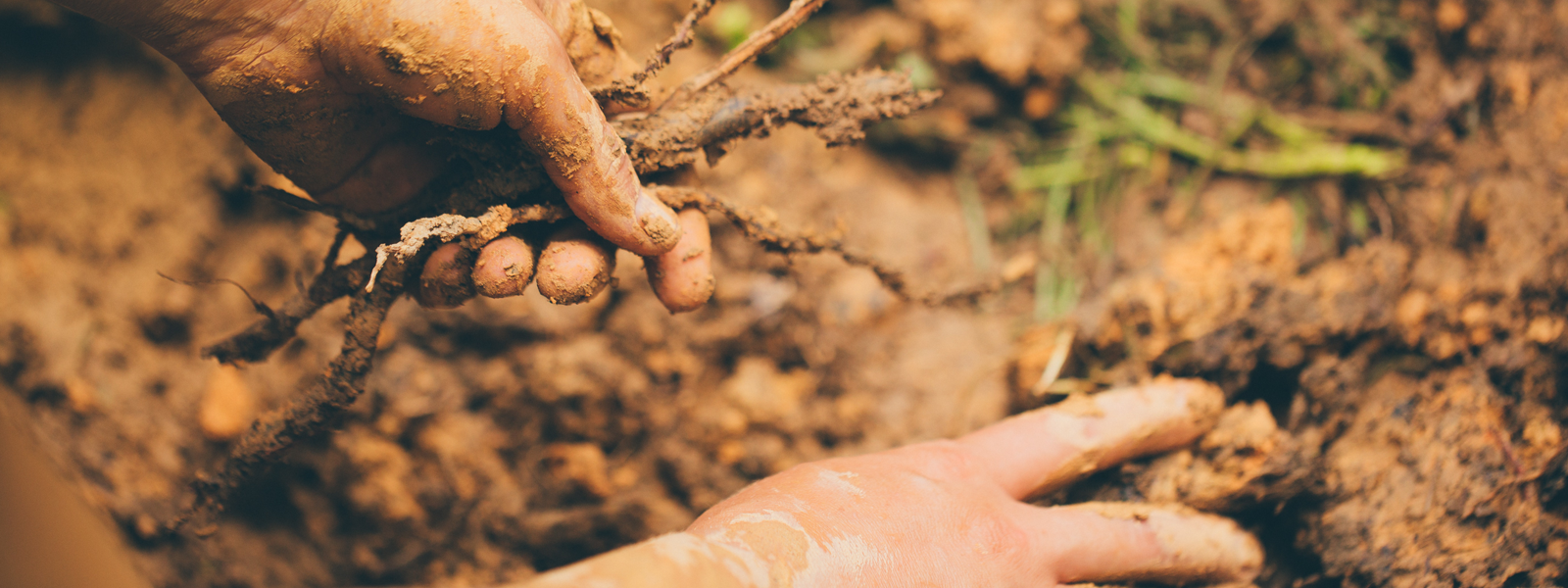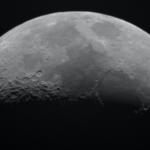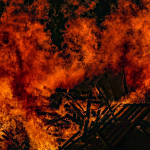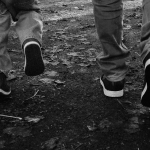“He’s mugged you … he’s mugged you,” my driving instructor notes as cars overtake me again and again. “Were you bullied at school?” he asks me, his lightness of tone betrayed by the disgust in his eyes. The worst thing you can be round here is weak, even when you’re a child.
We spend most of my lessons in traffic jams, rush hour on a weekday the only time we’re both available. I suspect he hates me. A thirty-five year old man who cannot drive. I want to pour my heart out to him, to make him understand. I guess it’s the sitting side-by-side that does it, the lack of eye contact making it easier to open up. I go to say something but he holds up a hand to shut me up. “Just concentrate on the road.”
There are stock phrases I use when I talk about my childhood: “in and out of psychiatric units”, “we were loved, we were never neglected” and “none of it was their fault. I don’t blame them.”
The truth is I blame my parents for many things. My wife’s pregnant again and she’s given me a deadline: learn to drive before the baby comes. Why didn’t I just learn to drive at seventeen like everyone else? I don’t think it was ever really an option in our house.
There are many things I’ve tried to change about myself over the years: I blink too much, stare too long, I am too polite, too earnest. Another thing: I watch too much TV. My wife switches it off whenever she enters the room. She doesn’t understand the need to drown out the noise in your head with the arguments of the fictional families on the Square, on the Cobbles, in the Dales. I’ve tried to change my memories but there is no altering the fact that you grew up in an unhappy, silent home.
I met my wife when we were both thirteen and staying in caravans with our friends’ families. We ended up snogging round the back of the arcades, exchanged addresses and fell in love via hormone-fuelled letters spritzed with candyfloss perfume, sealed with a kiss smeared in toffee apple lip balm. I went to stay with her family for a week the following summer. We drank wine with dinner and I ate pasta that didn’t come out of a tin for the first time.
Laura grew up in Somerset and enjoyed the kind of moneyed, bohemian childhood of barefoot summers, mud-encrusted fingernails and shame-free second-hand clothes that I only thought existed in books. Round our way, your neighbours would be ringing social services. Starched white socks, ironed underwear and a big fuck-off TV—these were the signs you were doing it right.
My wife lets our children trail about barefoot in the garden while they dig around in the mud with sticks. “Dirty, don’t touch,” my mum will hiss, falling over herself to dispense wet wipes and antibacterial gel. “Oh Jan,” my wife will say before lecturing her on the health benefits of playing with mud. My mum hates that Laura calls her by her first name, even after all these years.
They have had some blazing rows, Laura and my mum, like the time she came round after binge-watching Benefits Street the night before, saying things like, “If you can’t pay for your children, don’t have them,” and, “She should be sterilised.” This was what finally tipped Laura over the edge. Things almost turned violent but thankfully my mum stormed out before that happened. She seems to have conveniently forgotten all those years that her Incapacity Benefit stopped her children from starving while Laura will fight to the death to defend a welfare system that she will never need.
Round here we are not yet far away enough from a time when clothes went unwashed and hair unbrushed out of true neglect. When my nan died my mum felt bad for not crying but I thought she did well not to dance on the old witch’s grave. There are unspeakable things that can happen in childhoods and the silence trickles down through the generations and poisons the water, resulting in weird defects like a grandson who blinks too much and stares too long and who gets bullied because he is scared of everything.
It is still too bright at almost seven in the evening and I feel my bones illuminated and made visible by the sun’s rays. The shadows dissolve and there is nowhere to hide from the constant barrage of questions I ask myself, the answers to which are always the same: “Yes, we will all die”, “No, there are no entirely unselfish acts” and, “No, there is no point.” Everything is softened by the rain, gently blurred like after a glass of wine. That sounds like something Laura would say. Laura who does not give a shit what other people think of her but who cares deeply and genuinely about others. I know that her confidence comes from growing up in a world free from shame, free from guilt, free from ever having to stand in front of a mirror desperately trying to convince yourself that you were loved, never neglected. Sometimes I say hurtful things to try and make her feel guilty for her charmed life but mostly I am just grateful for the effect that being around a woman like Laura has had on me.
Our hour is almost up and as we inch towards the crossroads I realise that I have a choice: I can choose to not let the silence poison my children. I turn to the driving instructor and say, “actually mate, I was bullied as it goes.” And I can tell from his body language that he does not give a shit, that none of this makes a blind bit of difference to him. But it makes a difference to me and perhaps, in the end, that’s all that matters.
…
Biography
Fiona Goggin lives and works in a noisy, happy house halfway between London and the sea, writing fiction and non-fiction in-between looking after her two small children. Fiona worked for an audiobook charity for a number of years and is passionate about making literature accessible to everyone.
Image: Pexels.com





